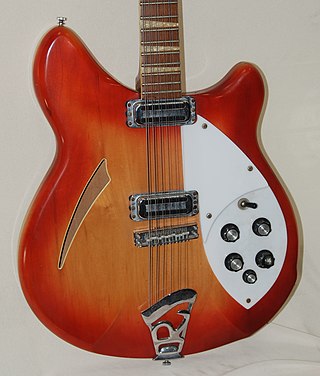A psychedelic is a psychoactive drug that alters cognition and perception.
Contents
Psychedelic may also refer to:
A psychedelic is a psychoactive drug that alters cognition and perception.
Psychedelic may also refer to:
Psychedelic rock is a rock music genre that is inspired, influenced, or representative of psychedelic culture, which is centered on perception-altering hallucinogenic drugs. The music incorporated new electronic sound effects and recording techniques, extended instrumental solos, and improvisation. Many psychedelic groups differ in style, and the label is often applied spuriously.

Psychedelia refers to the psychedelic subculture of the 1960s and the psychedelic experience. This includes psychedelic art, psychedelic music and style of dress during that era. This was primarily generated by people who used psychedelic drugs such as LSD, mescaline and psilocybin and also non-users who were participants and aficionados of this subculture. Psychedelic art and music typically recreate or reflect the experience of altered consciousness. Psychedelic art uses highly distorted, surreal visuals, bright colors and full spectrums and animation to evoke, convey, or enhance the psychedelic experience. Psychedelic music uses distorted electric guitar, Indian music elements such as the sitar, tabla, electronic effects, sound effects and reverb, and elaborate studio effects, such as playing tapes backwards or panning the music from one side to another.
Psychedelic Trance, Psytrance or Psy is a subgenre of trance music characterized by arrangements of rhythms and layered melodies created by high tempo riffs. The genre offers variety in terms of mood, tempo, and style. Some examples include full on, darkpsy, forest, minimal (Zenonesque), hitech psy, progressive, suomi, psy-chill, psycore, psybient, psybreaks, or "adapted" tracks from other music genres. Goa trance preceded psytrance; when digital media became more commonly used psytrance evolved. Goa continues to develop alongside the other genres.
Acid rock is a loosely defined type of rock music that evolved out of the mid-1960s garage punk movement and helped launch the psychedelic subculture. Named after lysergic acid diethylamide (LSD), the style is generally defined by heavy, distorted guitars, lyrics with drug references, and long improvised jams. Much of the style overlaps with 1960s garage punk, proto-metal, and early heavy, blues-based hard rock.
An acid is any chemical compound that, when dissolved in water, gives a solution with a pH of less than 7.0.
Scene may refer to:
Trip may refer to:

Psychedelic art is art, graphics or visual displays related to or inspired by psychedelic experiences and hallucinations known to follow the ingestion of psychedelic drugs such as LSD, psilocybin, and DMT. The word "psychedelic" means "mind manifesting". By that definition, all artistic efforts to depict the inner world of the psyche may be considered "psychedelic".
The Psychedelic era was the time of social, musical and artistic change influenced by psychedelic drugs, occurring from the mid-1960s to mid-1970s. The era was defined by the proliferation of LSD and its following influence in the development of psychedelic music and psychedelic film in the Western world.
Psychedelic folk is a loosely defined form of psychedelia that originated in the 1960s. It retains the largely acoustic instrumentation of folk, but adds musical elements common to psychedelic music.

Underground music is music with practices perceived as outside, or somehow opposed to, mainstream popular music culture. Underground music is intimately tied to popular music culture as a whole, so there are important tensions within underground music because it appears to both assimilate and resist the forms and processes of popular music culture.
Neo-psychedelia is a diverse genre of psychedelic music that draws inspiration from the sounds of 1960s psychedelia, either updating or copying the approaches from that era. Originating in the 1970s, it has occasionally seen mainstream pop success but is typically explored within alternative rock scenes. It initially developed as an outgrowth of the British post-punk scene, where it was also known as acid punk. After post-punk, neo-psychedelia flourished into a more widespread and international movement of artists who applied the spirit of psychedelic rock to new sounds and techniques.
Psy is a South Korean pop singer best known for his 2012 hit single "Gangnam Style".
Psycho may refer to:
Psychedelic music is a wide range of popular music styles and genres influenced by 1960s psychedelia, a subculture of people who used psychedelic drugs such as LSD, psilocybin mushrooms, mescaline, and cannabis to experience synesthesia and altered states of consciousness. Psychedelic music may also aim to enhance the experience of using these drugs and has been found to have a significant influence on psychedelic therapy.
Psychedelic pop is pop music that contains musical characteristics associated with psychedelic music. Developing in the late 1960s, elements included "trippy" features such as fuzz guitars, tape manipulation, backwards recording, sitars, and Beach Boys-style harmonies, wedded to melodic songs with tight song structures. The style lasted into the early 1970s. It has seen revivals in subsequent decades by neo-psychedelic artists.
Progressive music is a type of music that experiments with alternative routes. It may also refer to:
Patrick Lundborg was a writer on psychedelic culture and author of the books Psychedelia and The Acid Archives. Lundborg had a Bachelor of Science degree in applied systems science from Stockholm University, with additional studies in classic philosophy and the history of religion. Lundborg was an original member of the Lumber Island Acid Crew, a psychedelic artist collective which formed in Stockholm in the mid-1980s and remains active up to the present time.
Rubble may refer to:

Jangle pop is a subgenre of pop rock or college rock that emphasizes jangly guitars and 1960s-style pop melodies. The term originated from Bob Dylan's song "Mr. Tambourine Man", whose 1965 rendition by the Byrds became considered one of the genre's representative works. Since the 1960s, jangle pop has crossed numerous genres, including power pop, psychedelia, new wave, post-punk, and lo-fi.